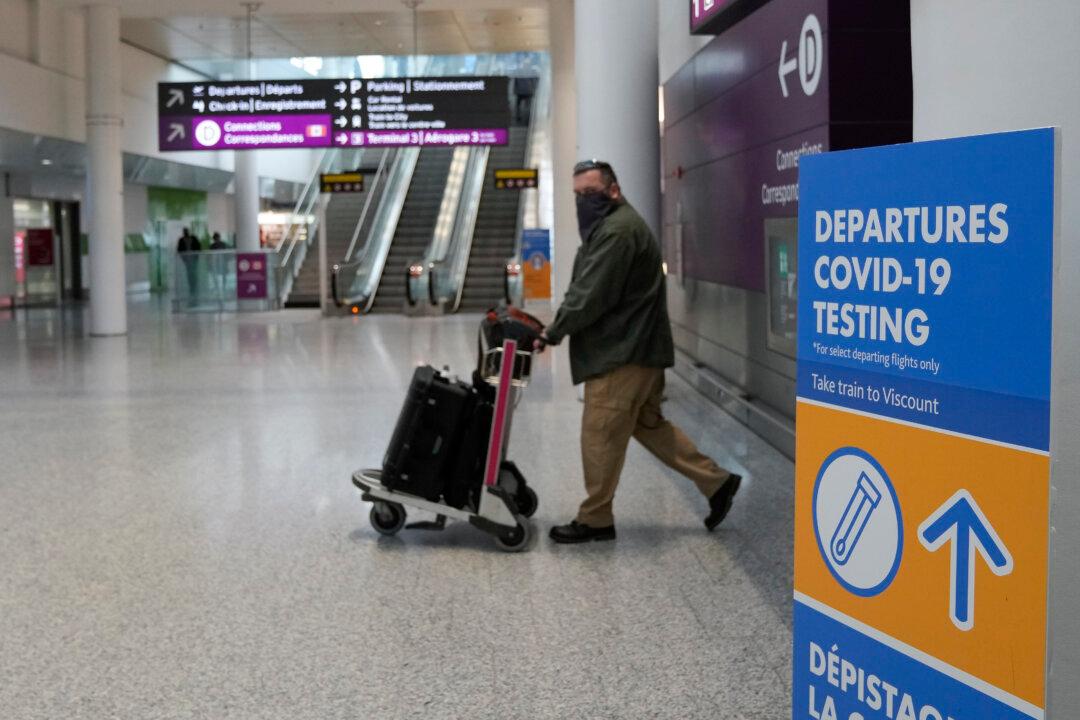A lawsuit challenging the Liberal government’s now-suspended COVID-19 travel vaccine mandate will be able to proceed to trial, after earlier legal challenges were dismissed as moot, a federal court has ruled.
The lawsuit was filed by businessmen Karl Harrison and Shaun Rickard. The two sought judicial review in December 2021, becoming the first to challenge the constitutionality of the travel restrictions that barred millions of unvaccinated Canadians from boarding planes, trains, and certain ships within Canada.





